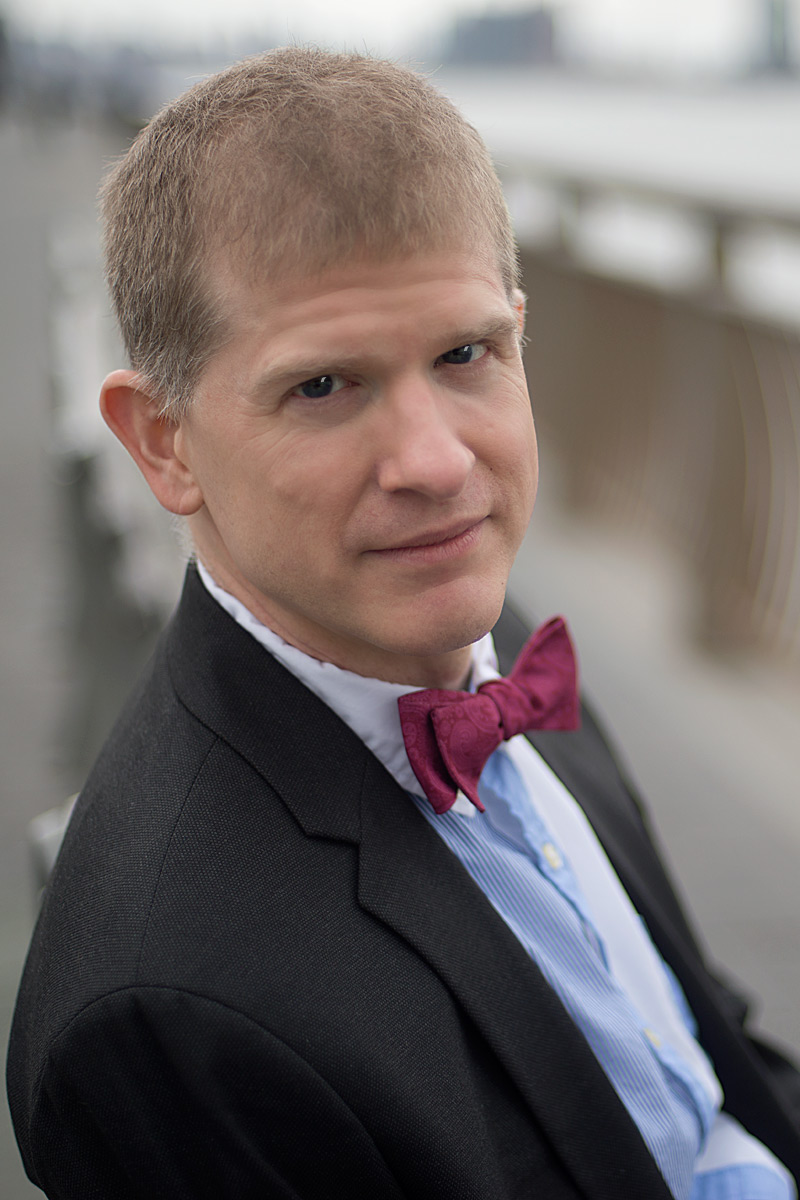
Works/Choral
Mixed Chorus
Psalm 118 for mixed chorus (1997)
ca. 5 minutes
Listen
Click here to read Program Notes
X
I wrote this setting of Psalm 118 at the suggestion of Samuel Adler, who was my teacher at the time. He said, “you and I both grew up the same way.”
This came as a shock because I am the son of an Episcopal priest. I grew up in a small town in Iowa. Mr. Adler is the son of a Jewish cantor. As a child, he escaped Nazi Germany with his family.
Of course, I was focusing on the obvious differences, while he was referring to growing up in a family of deep religious conviction and care about the world and its peoples. So in the very deepest sense, he was correct. He thought that I, with this background, should write a psalm setting and dedicate it to my parents. I heartily agreed and immediately called my father and mother to find out which psalms were their favorites. Psalm 118 was on their list and its opening line has always been a favorite of mine as well: “This is the day that the Lord has made, let us rejoice and be glad in it!”
For my setting, I decided to incorporate this line as an antiphon, using it like a refrain to provide the organizing structure for the piece. I also used it as the basis for the coda, letting its rhythm build until the final statement and ending on an unresolved chord—as if the listener must then go out, “rejoice and be glad in it!”
Praise, Laudate! for mixed chorus (2003)
ca. 7 minutes
Listen
Click here to read Program Notes
X
Praise, our own language Laudate! the common language of the entire early Christian Church. English is for us assembled here today; Latin reminds us of all those who have gone before. The two words, Praise, Laudate command the faithful of all times and places to join in a common expression of thanks to God, the Giver of Life—Life now, and Life forever. These words seem particularly appropriate for a Christian memorial to a vibrant soul taken early.
Psalm 148 is the text for this piece. The Psalmist calls for praise byeverythingon, in, above and around Earth. I chose also to include the final verse of Psalm 150, “Let everything that hath breath, praise the Lord!” I learned during one of my father’s sermons that the Hebrew word translated as breath actually has three meanings: breath, wind, and spirit. This verse summarizes the list from Psalm 148; all elements of Creation are summoned to praise God.
Janice Horak commissioned the piece in memory of her son Dan, who died tragically in a drunken-driving incident. Janice kindly sent me information about him—not to specify the kind of piece I should write, but to allow me to know more about his personality, and perhaps to find traits that I could emphasize in this piece. Dan had richly varied tastes in music—from the balance and form of classical music, to the primal energy of rap. While rap is not part of my usual compositional palette, I was taken by the idea of the spoken word and its resulting rhythmic intensity. The last line of Psalm 150 has an especially infectious rhythm; it inspired me to compose a spoken fugue. Dan also responded to strong driving rhythms; this aspect of music should be readily apparent throughout most of the work.
Jabberwocky for mixed chorus and Audubon bird calls (2005)
ca. 10 minutes
Listen
Click here to read Program Notes
X
I first read Jabberwocky when I was in fifth grade. The surreal language of the poem grabbed my attention and has held it ever since. Lewis Carroll’s use of sound to create words that are immediately evocative, while leaving their meanings entirely up to the reader, allows his listeners to create a new realm of their OWN imagination. When I sat down to write my setting of the poem, I decided to take the words apart and create a sonic backdrop from the individual consonants—continuing Carroll’s invitation for the audience’s own imaginings. In the book, Alice first encounters the poem and is completely bewildered, because it is a mirror poem—written entirely backwards. Of course, as she notes, it does not make much more sense forward either. Using that idea to add an even more otherworldly quality to my setting, I have a soloist sing the first part of the poem backwards, before the choir enters singing it the (supposedly) right way. Carroll beautifully balances the poem by repeating its first stanza at the end, which I mirror in my setting, allowing the reader/listener to imagine even more fantastic adventures.
Sandburg Blooms for mixed chorus (2011)
ca. 6 minutes
Night Rising for mixed chorus (2012)
ca. 6 minutes
Listen
Alarum! for mixed chorus (2015)
ca. 3 minutes
This Song, I Sing for mixed chorus (2018)
ca. 9.5 minutes
L’Hiver et l’été for double chorus (2007)
ca. 4 minutes
Listen
Everyone Sang for violin, soprano and mixed chorus (2005)
ca. 8 minutes
Women’s Chorus
Came Thy Love for women’s chorus (2003)
ca. 3 minutes
All Those Mothers at the Manger for women’s chorus (2006)
ca. 4 minutes
Listen
Come Away! for SSA chorus (2017)
ca. 4 minutes
Vocalise for SSA chorus with soloist (2017)
ca. 7 minutes
They Become the Trees for SSA chorus (2018)
ca. 4 minutes
